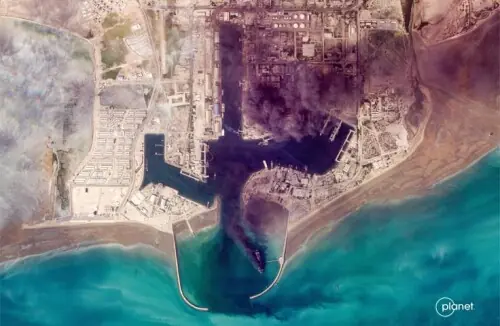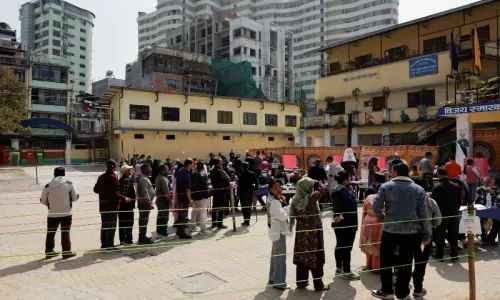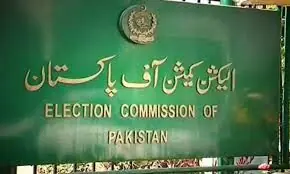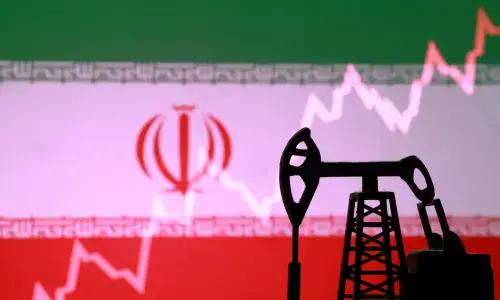A few years ago, while still in college, I attended a talk by Robert Fisk, the Middle East Bureau Chief for The Independent in UK.
He was in his usual Fisk-ian form. Lambasting western journalists for their false equivalencies, he spoke passionately about the Palestinian and Israeli conflict, recalled the atrocities committed in Iraq that he had had seen personally and basically painted a dismal picture for the future of the Middle East — one of eternal war and endless suffering.
Later on, I was lucky enough to get a few minutes with him alone, at which point I told him I was from Pakistan. He sighed as if a great burden had just descended down on him and gave me a knowing half-smile. I asked him about Afghanistan.
“We don’t read our history books.” he said. “The battles in Afghanistan, the war in Afghanistan, is not about Afghanistan — it’s about Kashmir. Many of the Taliban come from Kashmir, and the Pakistan military and the ISI have boosted their support for the Taliban because they believe the Indians are backing [Hamid] Karzai. By allowing India to control to fate of Kashmir, we have not only helped Pakistan to disintegrate, but ensured that Pakistani forces will help the Taliban, and the war will continue in Afghanistan.”
Fisk isn’t the only one to have voiced these sentiments. In an interview on National Public Radio in Washington DC, Admiral Mullen in 2011 said concerning Afghanistan, “I think unlocking Kashmir, which is a very difficult issue on the Pak-Indian border, is one that opens it all up.”
Kashmir is the reason Pakistan started utilising militant groups as not only proxies, but more specifically as “weapons” against India, in what is commonly known in security circles as Pakistan’s “Bleed India” campaign.
The use of militant groups as proxies has gone ignored by the US despite constant attacks against India. During his tenure, Mullen tried to seek the necessary civilian solutions between the three nation states as the key to solving this problem for all countries, but the efforts were perfunctory at best.
“Engagements with the civilian leaders, engagements with the economic leaders, engagements in the region, I believe we have to continue to try to, all of us, figure out a way to work that as well,” Mullen observed.
The folly in this whole plan to this point, it is said, remains with India, whose constant refusal of outside intervention or mediation and framing the problem as an “internal issue.” The general consensus among many people is that the Indians need to come to the realisation at some point that they must finally show some flexibility in the Kashmir issue.
But that’s only half of the story. For nearly a decade, the US has done little in terms of concrete efforts to improve relations between India and Pakistan. And because of this the ISI still allows Afghan and Central Asian terrorist groups to operate from Pakistani soil and refuses to clamp down on the anti-Indian terrorist groups operating from the Punjab province, including the Lashkar-e-Taiba, which launched the 2008 Mumbai attacks.
US negligence of the realities of the region has allowed foreign militants to radicalise Pakistani Pashtun tribes. Yet Pakistani strategists still think they can crush the homegrown militants while maintaining the Afghan Taliban as a proxy force for a final settlement in Afghanistan.
But while America’s mistakes are many and mendacious, its biggest mistake is its failure to recognise — or its ignorance of — Pakistan’s masochistic obsession with India. It’s been a known fact for decades that Pakistan’s army has historically been consumed with Indian expansion in the region, and has taken the billions in aid from the US to channel into weapons system for the next confrontation with India at great domestic costs. General Ashfaq Kayani has readily admitted to his philosophy on security to be “India-centric.”
While all that may be true, Fisk said, it isn’t really about Indian inflexibility or Pakistani intransigence in supporting militants. In the end, he said, it’s about justice and injustice.
“American authorities need to engage with Pakistan on the issue of Kashmir, and play the even handed role, which they are not playing in Kashmir any more than they are playing in the Palestinian and Israeli conflict,” he said. “And the reason [US and Britain] let the injustices continue is simply because India is the largest burgeoning economy in that area. America and Britain see India as the main buffer state against China and therefore we will support what India wants in Kashmir — not what the people of Kashmir want, but what India wants.”
US Defence Secretary Leon Panetta who has been highly critical of Pakistan’s links with the Haqqani Network, has also recognised the Kashmir-Afghanistan linkage. During a Q&A in Washington last year, he admitted that Afghanistan, Pakistan and India are “all part of a very vital area, a very vital region and that an awful lot of history created incredible complexities and difficulties” for US efforts to bring India, Pakistan and Afghanistan together.
Panetta went on to say that, “we [US] have urged them [Pakistan] to work with India to try to resolve the issues along the border area, because ultimately, until that is done, we are going to continue to have a great deal of instability.”
The remark is a telling representation of the hands-off attitude the US has when it comes to Kashmir.
Before he was elected, Barack Obama suggested he would try to resolve the India-Pakistan rivalry, and the Kashmir dispute that fuels it. But of course, the chasm between campaign Obama and President Obama is where his presidency has lost the credibility he had garnered both in terms of domestic and foreign policy.
While the United States has remained silent on Kashmir, a new Indo-Pak rivalry has erupted over the battle for influence in a post-US-withdrawal world, manifested in terrorist attacks on Indian diplomats and road workers in Afghanistan and, Pakistan claims, Indian-sponsored unrest in Balochistan.
The dichotomy of US policy in the region is that in its attempt to be farsighted in its geopolitical chess game with Russia and China, it has rendered its short term policies to be myopic to the point of foolishness.
This, as Fisk said, “is the equation that turns sand into blood.”
































